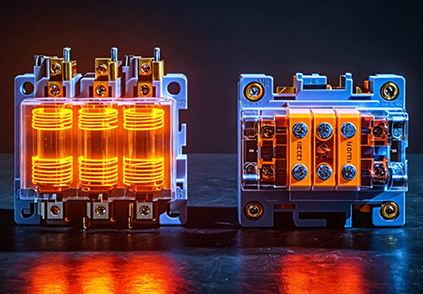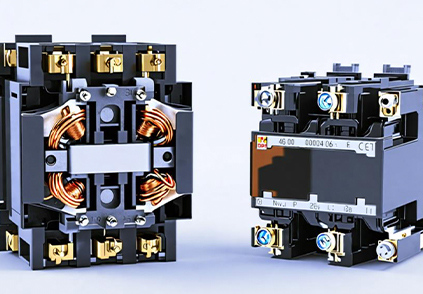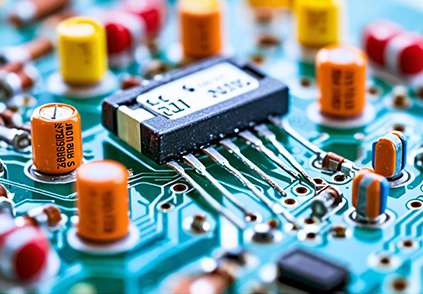- Home
- DC Contactor
- Page 2
DC Contactor
DC Contactor
DC Contactors from ELEHUB is a pivotal component designed for managing direct current (DC) in advanced energy systems. Built to handle substantial currents efficiently and safely, ELEHUB’s DC contactors are integral to applications like electric vehicles, renewable energy systems, and telecommunications infrastructure. These contactors feature robust construction with high-quality materials, ensuring reliable performance and longevity under demanding conditions. They utilize a coil mechanism to control the flow of electricity, capable of switching currents ranging from moderate to high amperages.
ELEHUB’s DC contactors are engineered to meet stringent industry standards, offering compact designs that optimize space utilization while maintaining high operational efficiency. Whether in battery management systems or solar inverters, ELEHUB’s DC contactors play a crucial role in enhancing the reliability and effectiveness of modern DC-powered technologies, supporting sustainable energy solutions worldwide.
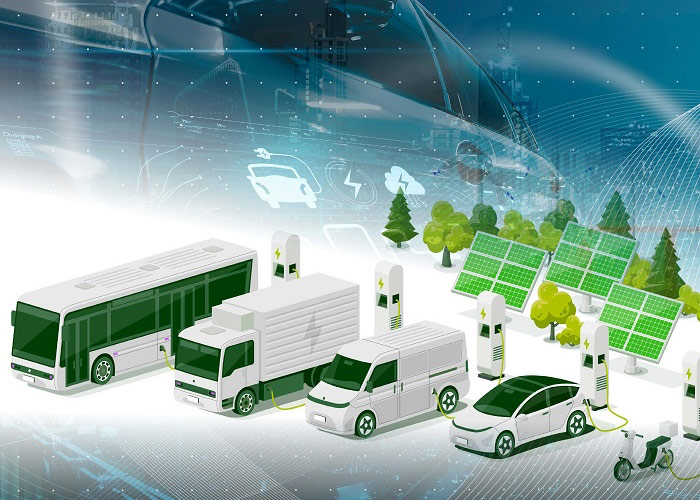
Types of DC Contactors in ELEHUB
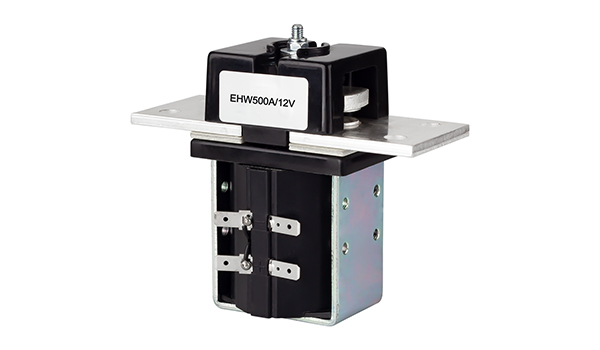
What is a DC Contactor?
A DC contactor is an essential electrical component used in various applications, especially in industries like automotive, renewable energy, and telecommunications. It functions similarly to a relay but is designed to handle direct current (DC) rather than alternating current (AC). The primary role of a DC contactor is to control the flow of electricity in a circuit by opening and closing contacts. This capability makes it crucial for switching high currents safely and efficiently, ranging from a few amperes to several hundred amperes or more, depending on the application’s requirements.
DC contactors typically consist of a coil, which when energized, generates a magnetic field that pulls in a set of contacts, thereby closing the circuit. They are used in various systems such as battery-powered vehicles (electric and hybrid), solar power systems, industrial machinery, and telecommunications equipment. Their reliability, compact size, and ability to withstand high currents and voltages make them indispensable in modern electrical systems where DC power management is critical.
How Does a DC Contactors Work?
DC contactor is like the switch for the DC motor. It has a coil which connected to a power source and contacts that are connected to the DC motor. When turn on the switch, electricity flows through the coil and creates a magnetic field.
The magnetic field pulls the contacts together, allowing electricity to flow to the motor and making it work. When turn off the switch, the magnetic field disappears, and the contacts disconnect, the motor stops.
Difference between AC and DC Contactor
- Core: The core of the AC contactor insulation silicon steel sheet overlying and into each other is made of a double E-shaped DC contactor core by the whole piece of soft iron, mostly U-shaped.
- The coil of turns: The AC contactor coil turns less access to the AC, AC adapter, and the number of turns into the AC power; the AC contactor is broken off the AC circuit, the DC contactor breaking is a DC circuit. AC contactor operating frequency up to 600 times/hour, the use of low cost, and DC contactor operating frequency up to 2000 times/hour, the use of high cost.
- The arc system: The AC contactor adopts an erase chip, and the DC contactor adopts a magnetic stripping device.
Powering Your Future with Precision and Reliability!
Inquire Now for Innovative Solutions
- +86-18968893222
- info@elehub.com
- Whatsapp: +86-18968893222
- NO.115 Xinguang Avenue, Xinguang Industrial Zone, Wenzhou, Zhejiang Province, China
CONTACT US
- We will contact you within 24 hours
- Don't worry, we hate spam too!
Stay updated on the latest innovations and trends in DC electrical components.
What is the Difference Between a Relay and a Contactor?
Relays and contactors are both electromagnetic switches, but they differ in their design, capacity, and…
What’s the Difference Between AC and DC Contactors? A Detailed Guide
When you’re dealing with electrical systems, understanding the key differences between AC and DC contactors…
What Is a Shunt Resistor? the Ultimate Guide to Shunt Resistor Basics & Applications
A shunt resistor is a precision, low-resistance component used to measure electric current by creating…


